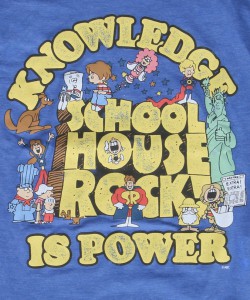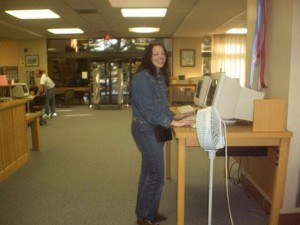Nov 30 2017
Schoolhouse Rock and Fighting Cancer
(This post was authored by Dr. Doug Talbert.)
I have a student who occasionally wears a “Schoolhouse Rock” shirt evoking some nostalgia for the short, educational cartoons that were shown on television when I was a child. The catchphrase for Schoolhouse Rock was “Knowledge is Power,” and even though it has been a long time since those were regularly aired, the truth of that catchphrase still resonates with me today, and as a data scientist, my job is to unlock the power of knowledge that is hidden inside data. In fact, Yann LeCun, Director of AI Research at Facebook, once said, “Most of the knowledge in the world in the future is going to be extracted by machines and will reside in machines.”

A group of TTU computer science students and I are trying to enable machines to extract knowledge from medical data and turn that knowledge into power in the fight against cancer. We have partnered with researchers at Oak Ridge National Laboratory and the Medical University of South Carolina to seek knowledge that will improve our understanding of cancer-related disease processes, enable more informed decisions regarding prevention and treatment, and possibly assist in the development of new prevention and treatment options.
This complex problem presents many challenges to both data scientists and clinicians. The relevant data includes electronic health records, clinical reports written in natural language, and genetic data containing sequences of thousands of genes. Our work will involve using data science to transform that data into something the computer can manipulate, to link related data together, to identify meaningful patterns, and, ultimately, to translate those patterns into knowledge that can help us prevent and treat cancer more effectively.
So far, I have focused mostly on the medical goals of our project – a better understanding of cancer and improved cancer prevention and treatment. We also hope to advance the state of knowledge in data science/machine learning. Our machine learning goals have been inspired by recent advances that seek to equip computers with more human-like learning capabilities – an ability to learn continuously, an ability to autonomously apply knowledge learned in one context to improve learning in another context, and an ability to self-direct learning.
The development of such an advanced learning system in an area as complex as cancer research will only become a reality through many small steps over a long period of time. Like the system we plan to build, we’ll learn as we go, and, hopefully, along the way, we’ll turn data into power that helps us beat cancer.
Comments Off on Schoolhouse Rock and Fighting Cancer

![fulltextlogo[2]](http://blogs.cae.tntech.edu/csc/files/2017/01/fulltextlogo2-300x70.png)


